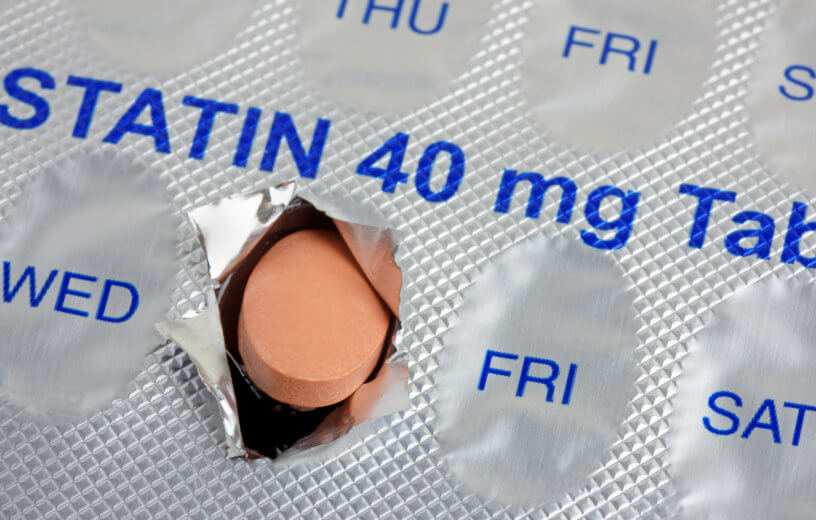BALTIMORE, Md. — Earlier COVID-19 studies have pointed to statins, drugs which lower cholesterol, being able to reduce the severity and risk of death from the virus. Unfortunately, researchers from Johns Hopkins Medicine are throwing cold water on that theory. Their study finds statins don’t seem to have any impact on COVID-19 mortality risk one way or the other. Moreover, using statins appears to show a connection with significantly greater chances of suffering severe COVID symptoms.
“Despite the apparent beneficial effect of statins on the outcomes of various infectious diseases, our study revealed that their specific use to treat COVID-19 is probably not merited,” says senior study author and professor of medicine Petros Karakousis, M.D., in a university release. “Compared with earlier research, we looked at a larger and more widely varied inpatient population, and had better criteria for defining disease severity, thereby enabling our results to be more relevant for predicting the impact of statins on COVID-19 outcomes in hospitalized patients.”
This research is much more extensive than those prior projects as well. Study authors examined close to 4,500 patients hospitalized with COVID-19 over a four-month period. Among that sample, 594 (13%) received a statin after entering the hospital. Most patients given statins were men (57%) and older adults (ages 52–78). A significant portion of statin users were Black (47%), had high blood pressure (74%), diabetes (53%), and were more likely to take blood pressure meds and statins to reduce their LDL cholesterol.
Cholesterol drugs may make COVID symptoms worse
The team considered a death COVID-related only if the individual passed away while staying in the hospital for a COVID-19 infection. They defined a “severe” case of COVID-19 as either staying any longer than a week in the hospital or requiring ventilation to breathe.
Even after being sure to account for potentially influential outside factors, study authors still concluded that statin use had no significant impact on COVID-19 mortality rates. However, hospitalized COVID-19 patients taking a statin had an 18-percent elevated risk of having more severe symptoms than other patients not taking any cholesterol-lowering drugs.
“One plausible explanation for this finding is that statins increase cellular production of angiotensin-converting enzyme 2 [commonly known as ACE2], the receptor on a cell’s surface through which SARS-CoV-2 gains entry,” Dr. Karakousis says. “Therefore, statins may lower a cell’s resistance to infection and in turn, increase the odds that the patient will have a more severe case of COVID-19.”
“All of the studies published to date, including ours, have been retrospective — and that means no matter how hard one tries to eliminate factors associated with poor COVID-19 outcomes other than statin use, some may still be at work,” Dr. Karakousis concludes. “For example, there’s the fact that many statin users also are overweight, have diabetes or experience high blood pressure — all things that can impact the severity of COVID-19 on their own.”
The study is published in the journal PLoS ONE.
